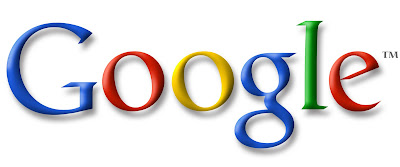 By The San Fransisco Chronicle
By The San Fransisco ChronicleGoogle's proposed book settlement with book authors and publishers, allowing the company to digitize and sell millions of books, makes a "mockery" of copyright protections in the U.S. Constitution, the head of the U.S. Copyright Office said Thursday.
The Google book settlement, the subject of a court hearing next month, allows Google to scan out-of-print books without permission from copyright owners, creating a sort of compulsory license, said Marybeth Peters, register of copyrights at the U.S. Copyright Office. The settlement "allows Google to continue to scan millions of books into the future and permits Google to engage in a number of activities ... that are indisputably acts of copyright infringement," Peters told the U.S. House of Representatives Judiciary Committee.
The settlement seeks to circumvent "full public debate" and Congress' authority to change copyright law by allowing Google new rights for digital books, she added.
"The settlement would alter the landscape of copyright law, for millions and millions of rights holders of out-of-print books," Peters said. "It would flip copyright on its head by allowing Google to engage in extensive new uses without the consent of the copyright owner -- in my view, making a mockery of Article One of the Constitution, that anticipates that authors shall be granted exclusive rights."
A hearing on the settlement is scheduled for Oct. 7 in the U.S. District Court for the Southern District of New York. In October, after three years of negotiations, Google, the Authors Guild and the Association of American Publishers announced a settlement of lawsuits filed against Google after it began scanning books without copyright owners' permission.
Google has scanned about 10 million books and has begun offering access to books with its Google Books product.
Representatives of Google, the Authors Guild and the National Federation of the Blind defended the book deal, saying it will give the public access to millions of out-of-print and so-called orphaned books. Orphaned books are those for which no one claims copyright, and the settlement sets up an independent book registry that will seek to find the owners of orphaned works.
Blind people will gain access to digitized versions of books, which can be run through text-to-speech software, advocates said. Disadvantaged students across the U.S. will have access to books now only available in the world's greatest libraries, added David Balto, a senior fellow at the Center for American Progress and a former antitrust attorney with the U.S. Department of Justice and the U.S. Federal Trade Commission.
Lawmakers generally praised the settlement. The settlement represents "one of the most innovative developments" since the printing press, said Representative John Conyers, a Michigan Democrat and chairman of the committee.
But critics said the settlement gives Google an unfair advantage by allowing it blanket access to most books. The settlement rewards Google for scanning first without asking authors and publishers for permission, said Paul Misener, vice president of global policy at Amazon.com.
Amazon has scanned about 3 million books, Misener said. "The difference is, and probably the only significant difference between their book-scanning project and ours, is we first sought permission from the rights holders," he said. "We went to the rights holders, and one by one, negotiated deals ... to be allowed, legally, to scan these books."
The settlement releases Google from liability for any past and future copyright infringement, giving the company a huge advantage over competitors, Misener said.
The settlement would give Google an "unlawful and inappropriate" monopoly and strips away the rights of copyright holders worldwide, added John Simpson, a consumer advocate with Consumer Watchdog. "The deal simply furthers the relatively narrow agenda of Google, the Authors Guild and the Association of American Publishers," he said.
But David Drummond, Google's chief legal officer, told lawmakers that none of the benefits negotiated in the settlement are exclusive to Google. Any other company can negotiate the same deal, he said.
Drummond also told the committee that Google will expand retailer access to books scanned and sold by the company. Google has already committed to allow retailers access to sell in-print books scanned by Google, but on Wednesday, he announced that Google would expand that program to out-of-print books covered by the settlement. Amazon.com and other retailers will be able to sell those books and get part of Google's revenue share, he said.
"We're willing to put our money where our mouth is," Drummond said. "We believe strongly in an open and competitive market for digital books. Google will host the digital books online, and retailers such as Amazon, Barnes & Noble or your local bookstore will be able to sell access to users on any Internet-connected device they choose."
